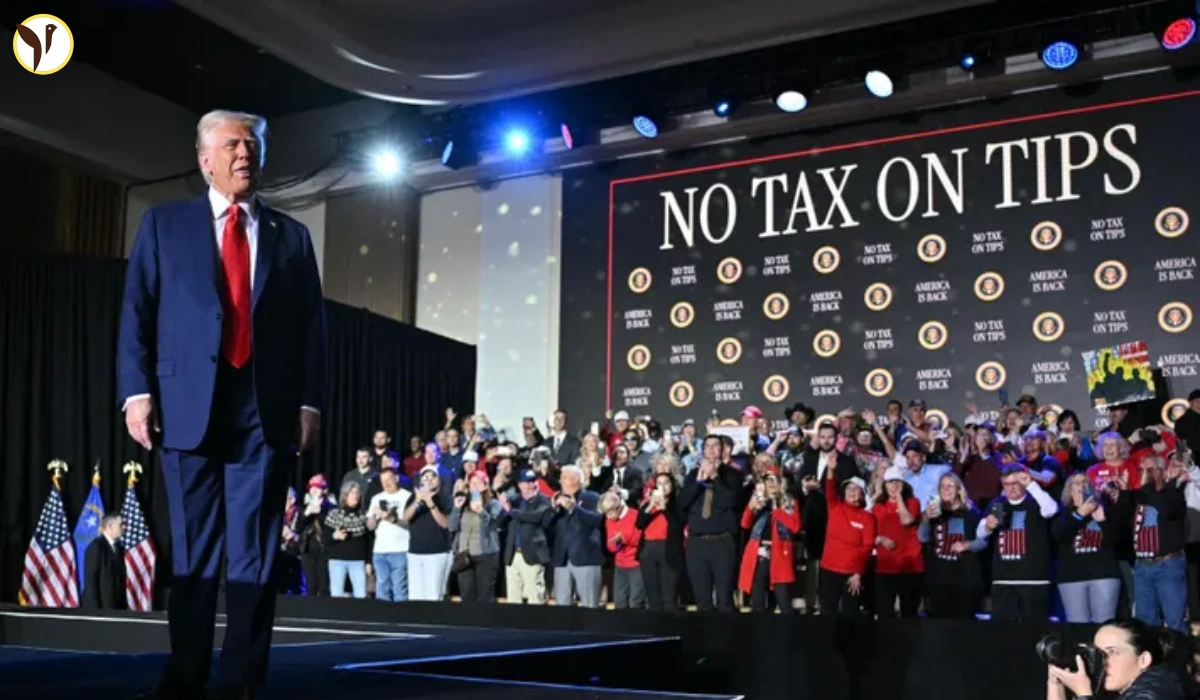In an unexpected display of unity, the U.S. Senate recently passed the no tax on tips act with unanimous support, garnering widespread attention. Although the bill hasn't been officially passed yet, it signifies a significant change in how the federal government may handle income from tips, particularly in sectors such as hospitality and food service.
However, what is this bill, and why is it causing such a stir among politicians, economists, and different social classes?
What is no tax on tips act?
The no tax on tips act is a proposed law that aims to remove the requirement for tips to be included in federal income tax. This change would eliminate the need for waiters, bartenders, delivery drivers, hotel staff, and other individuals who rely heavily on tips to pay taxes on their earnings.
The bill was proposed as part of Donald Trump's 2024 campaign platform, and its approval in the Senate is viewed as a political victory and a statement to millions of tipped workers. Nevertheless, for the act to become a law, it still needs to be approved by the house of representatives and signed by the president.
Why tipped workers are watching closely.
For workers in the service industry, the potential advantages are substantial. Currently, tips are considered as taxable income, resulting in a portion of the earnings being subject to taxation by the IRS. If the legislation is passed, tipped employees would have the opportunity to receive a larger portion of their earnings directly, without any deductions for federal taxes.
How much further? The amount of money they can save depends on their income and tax bracket, but for someone earning $200 a week in tips, the change could result in an additional $1,000–$2,000 in their wallet each year. For individuals who work full-time in areas with high tips, the increase in the minimum wage could be even more significant.
This additional income could be life-altering—particularly in industries where tips play a significant role, such as lower-wage sectors.
Financial and governmental repercussions.
The concept of eliminating taxes on tips is enticing to many, but it has far-reaching economic consequences. Critics contend that implementing such a policy could result in billions of dollars in lost federal revenue, potentially burdening government programs that rely on tax funds. Some economists also caution that it may lead to unequal tax treatment, where certain types of income are subject to taxation while others are not.
Politically, it is a potent declaration. By prioritizing the concerns of working-class Americans, Trump is employing the bill to strengthen his campaign's narrative of populism. The unanimous vote in the senate indicates that the idea has broad support—or at least no one wants to be perceived as opposing a bill that aids low-wage workers.
Revisions to the taxation system.
If the no tax on tips act is passed, it would bring about a substantial alteration to the federal tax code. Currently, both employers and employees are accountable for keeping track and reporting tip earnings. Employers frequently utilize irs tip reporting agreements to guarantee adherence to regulations.
By implementing this act, the reporting burden may be reduced, but it could also create new challenges or opportunities for manipulation. For example, it can be challenging to differentiate between what is considered a 'tip' and a'service charge' (which is still subject to taxation).
The IRS might have to provide additional instructions or establish new procedures to prevent misuse, like employers wrongly categorizing wages as tips.
Pros vs. Cons.
Advocates for the act—including numerous Republican lawmakers and representatives from the hospitality industry—argue that it is a matter of fairness and providing financial assistance. They contend that employees shouldn't be penalized for receiving tips, particularly in occupations where their base wages are frequently below the minimum wage.
However, critics argue that this decision may be more symbolic than practical. Without making adjustments to the budget, it could contribute to the increase in the national deficit. Some people believe that this decision could make the tax code even more complicated.
There is apprehension that this could be a strategic move rather than a long-term solution.
A meaningful act or a genuine transformation?.
The future of the no tax on tips act is uncertain, as its passage into law is yet to be determined. Currently, it is a proposal with significant support, but it still needs to overcome important obstacles in the legislative body and withstand potential legal disputes.
Despite its current state, the bill is already initiating crucial discussions about how the United States values and compensates service workers, as well as determining who should bear the tax burden in today's economy.
It's a positive development that tipped workers feel their concerns are being acknowledged and addressed. For lawmakers, it's a delicate balancing act between political popularity and responsible financial management. For the nation, it's a glimpse into how tax reform could potentially evolve in the coming months.









